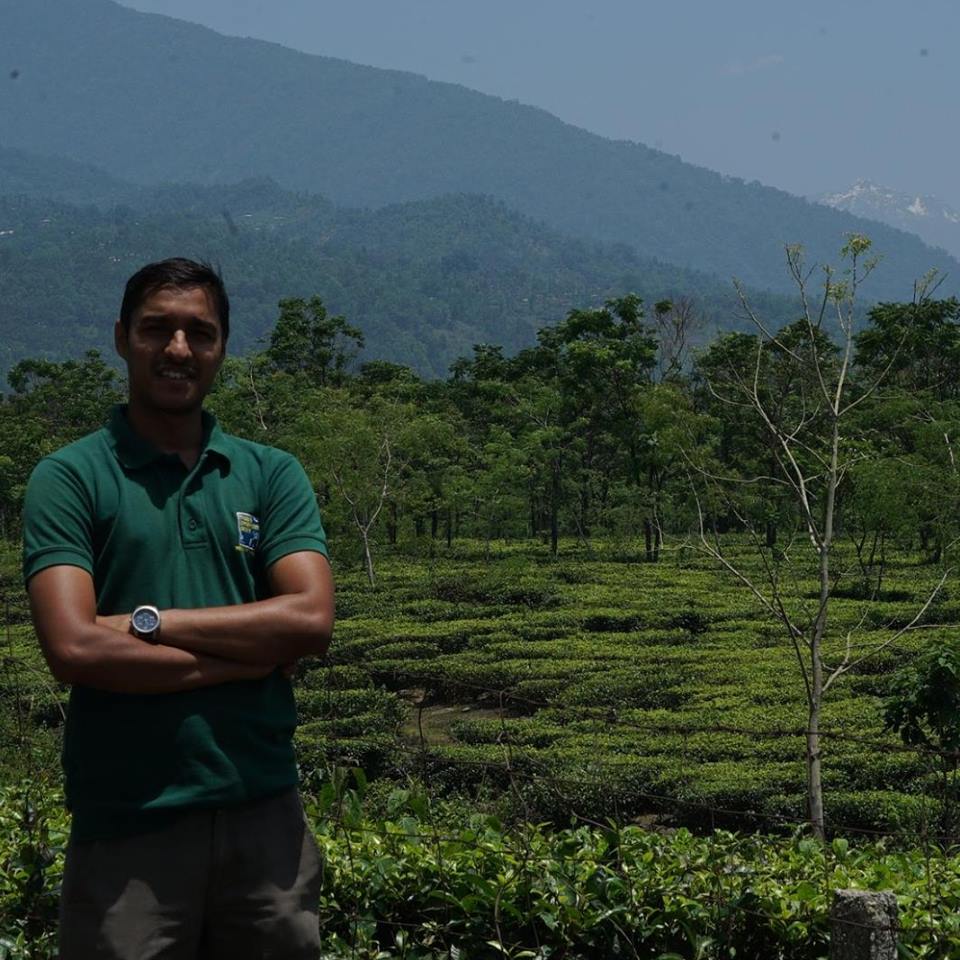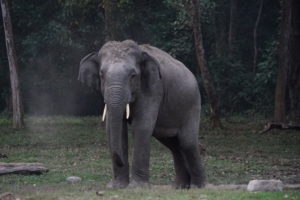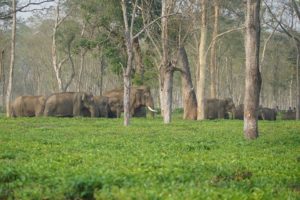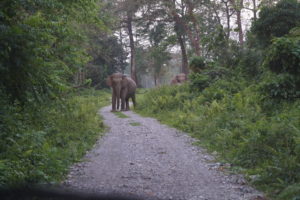Elephant a Family Man...

Aritra Kshettry
My name is Aritra Kshettry, I come from a background in Zoology (bachelors) and a masters in Wildlife Biology. I have always loved nature; thanks to my parents who took me and my sister for various trips to different forests while we were young.
I still remember my first photograph by using my father’s camera was of a lioness and 7 cubs in Gir safari way back in 1998. My real connect with nature started during my bachelors while visiting forest areas for field trips and for projects. I decided that this is what I want to do for the rest of my life. The usual 9-5 routine and the usual rat race was not something I thought I would be good at.
My family has always been supportive of my decisions since college. Calcutta (now Kolkata) does not have the culture of summer camps and other outdoor activities as part of school curriculum. Hence it was difficult for me to convince my family initially that I want to take two months off just before my final year exams to intern with the Wildlife Trust of India. However, my parents agreed without any hesitation.

My sister has always been the backbone of my career and she has played a very important role in it. While I was doing my masters in Bangalore, she was the one person supporting me in every way since she was also based out of the same city. I remember she even made it to my thesis defense with a torn ligament and hardly being able to walk.
I passed plus 2 with physics, Chemistry, Mathematics and Biology and did my bachelors in Zoology followed by a masters in Wildlife Biology and Conservation. Currently a lot of collaborating organisations are helping me get a PhD which includes the Centre for Wildlife Studies, Bangalore Centre for Ecological Sciences, IISC, Department of Science and Technology, Government of India etc.

My work mostly involves the integration of science and human skills. By human skills I mean the ability to engage with different kinds of people to affect change in the conservation sector. I work with scientists, tea estate owners, managers, forest department officials, panchayat members, labor union leaders as well as local villagers to make them understand the challenges of sharing space with leopards and elephants and also to educate them on how to prevent negative encounters.
Elephants in West Bengal state are in two populations, one in the southern side and the other in the northern side, The northern population have about 500 elephants which use forests connected by tea-estates and villages. Across India, habitat scarcity is a primary threat for elephants. There is just not enough food inside small sized Protected forests to help sustain elephant populations.

Elephants are long living animals whose social lives are very similar to ours. They feel very strong family ties and bonds. They feel pain, anger and sadness just as we do. Their large body size, high food requirement and social lives bring them in constant interaction with humans and that is where conservation conflicts arise.
Green career can give you happiness and satisfaction-
Youngsters should be aware of the choices they make, a green career not only means being a wildlife biologist or a conservationist. We as global citizens need to learn how to make green choices in our lives. It can be a simple act of refusing to use plastics and going back to traditional shopping bags. A green career can also be about motivating large number of citizens to make a greener choice so that we can ensure ecological as well as economic stability for future generations. The current trend of maximizing economic profit will lead to minimizing our ecological dividend. Passion is important for any field in life, not just for a green career. Whatever you do, do it with passion. Do not take shortcuts.